Julius Rosenwald, a Jewish peddler’s son who never finished high school, rose to become the chairman of Sears, Roebuck & Company and a modest philanthropist who gave away $62 million in his lifetime, including seed money for more than 5,000 schools for black children in the early 1900s.
More than 80 years after his death, Rosenwald’s story is making headlines around the world, thanks to award-winning Washington, D.C., filmmaker Aviva Kempner. She released her new feature-length documentary, “Rosenwald,” in August. Thus far, it has played in more than 90 theaters in markets across the United States, such as Atlanta, Boston, Chicago, Los Angeles, Miami, New York, Philadelphia and San Francisco.
“I greatly admire Rosenwald’s philanthropy. He gave away $62 million to various causes, which in today’s dollars is closer to $1 billion,” says Kempner, whose films illuminate the untold stories of Jewish heroes. Her previous documentaries include “Partisans of Vilna,” “The Life and Times of Hank Greenberg,” and “Yoo-Hoo, Mrs. Goldberg.” She calls Rosenwald “the greatest philanthropist you’ve never heard of.”
“I felt that this story was too important to go unnoticed. It is a great Jewish legacy that I am excited to make better known. At a time when financial hardships abound and civil rights issues unfortunately still exist, it is imperative that Julius Rosenwald’s story be told now.”
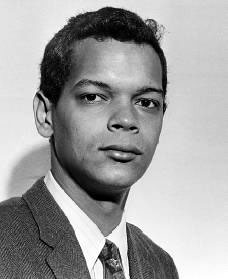
Twelve years ago Kempner was attending a lecture at the Hebrew Center on Martha’s Vineyard in Massachusetts and heard about Julius Rosenwald. She listened to Julian Bond, the late American civil rights leader, talk about his family’s connection to Rosenwald, who built schools and housing for blacks in the early 1900s and provided grants for promising black artists and writers. Immediately, the story had her hooked.
Kempner felt Rosenwald embodied the Jewish values of tikkun olam (repairing the world) and tzedakah (charity).
After the talk, she told Bond, “I’m going to make this film.” Thus began a collaboration that lasted 12 year, with Bond serving as her main consultant on the film. Interviewees include famous actors, authors, rabbis and politicians, as well as Rosenwald’s descendants.
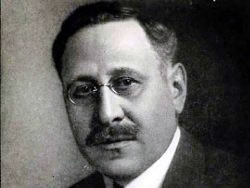
Rosenwald grew up across from President Abraham Lincoln’s family in Springfield, Illinois. He went into the clothing trade with his family and ended up in Chicago, where he had an opportunity to become a partner with Richard Sears in 1895. He proved an excellent manager, helping to make Sears the largest retailer in the country. The peddler’s son became rich beyond his wildest dreams and built a block-long house for his family.
However, the film reveals an endearing humility. In a sound-bite from the documentary, Rosenwald says, “Most people are of the opinion that because a man has made a fortune, that his opinions on any subject are valuable. Don’t be fooled into believing that if a man is rich, he is smart. … Most large fortunes are made by men of mediocre ability who tumbled into a lucky opportunity and couldn’t help but get rich.”
Rosenwald had two personalities, according to his great-grandson: a tough, profit-driven businessman and a civil rights champion who wanted to help blacks go to school and live the American dream.
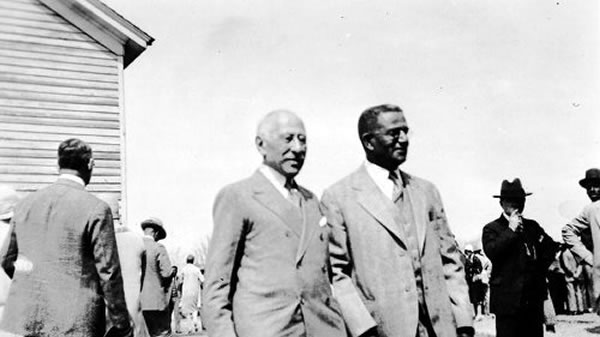
Influenced by the writings of black educator Booker T. Washington, the Jewish philanthropist joined forces with African-American communities in the segregated South to build not only schools, but also YMCAs and YWCAs.
Rosenwald said as a Jew – a member of a despised minority – he identified with blacks. In 1910 a YMCA delegation asked him to give $25,000 to build a “Negro YMCA” in Chicago. He said he would provide that to any Y in the country that could raise an additional $75,000. And so began a model for building nearly 30 Y’s across the country between 1913 and 1932, the year Rosenwald died.
The same principle applied in building schools. He didn’t just give money; he challenged the community to match funds.
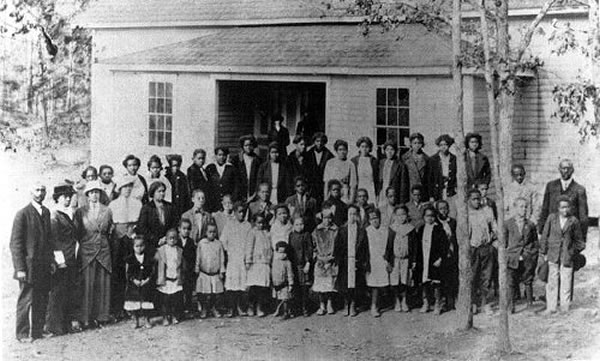
Rosenwald served as a trustee of Tuskegee Institute, a historically black college in Alabama. On his 50th birthday in 1912, the philanthropist gave Tuskegee $25,000 to be distributed as grants for other black schools that followed the Tuskegee model. Booker T. Washington, Tuskegee’s first leader, suggested taking approximately $2,800 of this money to build six small elementary schoolhouses for blacks in rural communities. The need arose due to underfunding of public education for black children who were required to attend segregated schools.
“The genius of Rosenwald schools wasn’t that he gave money,” Julian Bond explains in the film. “He said, ‘Here’s money; I’ll give you one-third the cost of the school, and you’ll have to raise in your community one-third, and go to the local white community to raise the remaining one-third.”
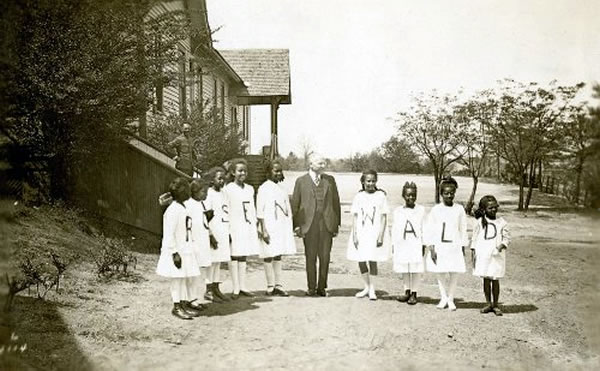
The Sears mogul created buy-in and community partnership. The black community raised money through bake sales, fish fries and other efforts. However, not everyone was sold.
Hate-mongers sometimes would set fire to Rosenwald schools or blast them with dynamite. The schools would be rebuilt once, even twice, before they were left alone.
Rosenwald schools lasted until the Civil Rights era in the United States. In 1954, when the Supreme Court declared segregation in education unconstitutional, the schools became obsolete.
The Rosenwald Fund donated to public schools, colleges and universities, Jewish charities and black institutions, and also made grants directly to black artists, writers, researchers and intellectuals, before all of the money was spent in 1948, per the benefactor’s wishes.
Bond, whose father received a Rosenwald fellowship, called the list of grantees a “Who’s Who of Black America.” It included contralto Marian Anderson, poet Langston Hughes and Nobel Peace Prize-winning diplomat Ralph Bunche, among many others.
Through his example, the philanthropist inspired others to make a difference. For instance, Rosenwald’s children and cousins rescued 300 relatives from Nazi Germany and helped settle and educate them in America.
“We can’t all give $62 million away, but I think there’s a little Rosenwald in all of us. What we’re doing in Washington is collecting books to take to the local schools,” says Kempner, born in Berlin after World War II to a Holocaust survivor and a U.S. Army officer. She hopes her latest film will inspire viewers to offer their own brand of tikkun olam.
[Published on Aish.com, November 1, 2015]
